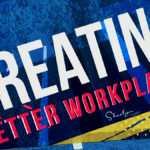Back in the day, customers didn’t really get involved in the way management treated employees. They were pretty much only concerned about the company’s product or service. As long as the company provided a good product or service, customers were happy.
Those times have changed.
First, customers wanted to know that the product or service they were buying was made with environmentally friendly materials. Companies responded with efforts to recycle, reuse, and reduce as much as possible.
Then, customers starting shifting support to companies that have a defined social mission. It’s okay to be wildly profitable (in fact, shareholders love it) but companies needed to support the communities that support them. Organizations have now transformed their behind-the-scenes philanthropy into visible components of their culture and marketing.
Now, customers want to know that employees are being treated right. Case in point is the backlash businesses are experiencing as a consequence of their public plans to thwart the Affordable Care Act (aka Obamacare).
Companies like Papa John’s and Darden Restaurants have seen a negative impact to their bottom line as a result. That’s customers making the decision to pull their financial support in response to their perception of unfair employee treatment in lieu of higher profits.
Now more than ever, corporate culture plays a role in the marketing of a company. I believe customers are fine with organizations making money and profits. But not at the expense of employees, the environment, their communities or the less fortunate.
That’s why I’m very excited to be joining the ethics and corporate social responsibility expertise panel at the Society for Human Resource Management (SHRM). The role of this panel is to explore this subject in depth and share information with human resources pros about existing trends that impact our workplaces. I’m thrilled about the opportunity to contribute at this level.
Let me know your thoughts. Are customers starting to weigh in on how companies treat their employees?
Image courtesy of HR Bartender








Lorene Schaefer says
Congratulations on joining the panel. I agree generally with the points you make above and it will be fascinating to watch how this plays out given that most lawyers today would say that under current US law the purpose of the modern public corporation is maximizing their shareholders’ wealth as measured by stock price. Other goals–serving customers, building great products, providing good jobs—are viewed as legitimate business ends only to the extent they increase “shareholder value.” Indeed, in the US the public corporation has a legal duty to maximize shareholder value and only the legal duty not to discriminate against its employees as in the majority of states employees are at-will. By comparison, public companies in the EU have legal obligations (admittedly they vary country to country) to inform and consult their employees on strategic business decisions such as redundancies.
Marge Pfleiderer says
I’m thrilled that SHRM was able to snag you for this panel! Congratulations!
To answer your question, I am certainly responding to how companies treat their employees. More accurately, I’ve been doing it off and on since the 70’s. The difference now is the wider reach due to social media. Back in the day, my immediate circle of friends knew if I was boycotting a certain beer company. Now, that circle of friends tends to be larger and aware of my concerns in a more timely fashion. Today if I boycott a beer company or a megastore for the way they treat their employees, people in numbers of states and several foreign countries are aware of it. I think the order of magnitude – and possible influence – is the other story.
Sybil Stershic says
As a marketer, I know that most customers are sensitive to how employees are treated, particularly in service-based organizations that depend on employees to deliver the brand promise to customers; e.g., financial services, healthcare, hospitality, human/social services, etc. In those industries, customer relations “mirror” employee relations: the way employees feel is the way customers will feel; and if the employees don’t feel valued, neither will customers.
As Marge noted, social media has changed the ability to share “word-of-mouth” … now known as “word-of-mouse.” Social media has also enabled greater transparency, so companies can’t get away with promoting themselves through CSR (corporate social responsibility) efforts if they’re not equally responsible to their employees.
Sharlyn Lauby says
Thanks so much for the kind words and comments! It’s becoming apparent that shareholder value doesn’t get created in a vacuum. As Marge mentioned, social media is amplifying the message.
I like Sybil’s mention of “word of mouse”. I’ll have to remember that.
Russel Stuart says
Well done, Sharlyn! It is good to hear this.
About the aims of this panel of SHRM, I would like to think that this is a laudable step. Employers are certainly obliged to treat their employees well, but this is observed more in breach, generally. Now that we have a panel to actually enforce it through affirmative action, all the better.
But one note of scepticism: Does this rule apply to our companies that have their manufacturing and services abroad, especially in developing countries? How does SHRM plan to handle this? The bad memories of Chiquita, et al are still fresh in many people’s minds. I hope SHRM’s work will prevent a return to those dark days.
Good intent matched by corresponding effort, though!
Questions First says
Great story, but is this the rule or the exception?
Foxconn had and still has major issues with how they treat their employees. Everyone knows about it but do you know any Apple customers who decided to do something about it?
Or maybe people don’t care because they’re Chinese employees, not American?
Sharlyn Lauby says
Thanks for the comments. SHRM’s CSR panel has been around for a while, although it’s only recently merged with the Ethics panel. Their role isn’t to enforce per se, it’s to share knowledge to help HR pros who are looking for information in this space.
That being said, I agree – there have been some unpleasant memories and HR needs to develop some best practices in the area that can benefit the entire organization.
Clarissa Hryniewich says
I think this is great change in people’s mentality